"Planet Bowie" talk at Cambridge

Ok this is short notice, but I am giving this fun talk on Wednesday the 11th of November at Homerton College, University of Cambridge. Huge thanks to Mark at Davidbowie.com /David Bowie Official for the cool flyer above and for plugging it on DB's official website (how cool is that?)
My talk will look in some detail at Bowie's representations and contributions to culture, and how these contributions are entangled with issues related to aesthetics, queerness, politics, authenticity and performance. I'll also talk about recurring sounds and themes within the catalogue, and together we'll analyse the imagery and sounds of 'Blackstar' for clues as to where he might go to next.
Admission is free, but if you are thinking of attending please RSVP here: lms56@cam.ac.uk
Visiting Scholar Appointment: NYU

During the first week of December I'll be hanging out in NYU Steinhardt's music technology/music education departments as a visiting scholar. I plan to give a few talks, sit in on some lectures and workshops, snoop around the library and archives and generally just try to soak up a bit of that NYU energy to take back with me to Kingston.
I was invited by Professor S. Alex Ruthmann, Chairperson of the Department of Education, previously of MIT. Alex is one of the most exciting researchers around in the field of music education, integrating technology, computer science and interdisciplinary approaches to musical learning. I met and became friends with Alex and his wife Anne during one of their visits to the Faculty of Education at Cambridge a few years ago. It will be great to see them again, and to take part in the exciting things the faculty and students are doing over there. I can't wait!
Art of Record Production Conference: Drexel University, Philadelphia

I will be attending and presenting a paper at this year's Art of Record Production conference at Drexel University, Philadelphia, from the 6th - 8th of November. I'm super excited about the keynotes from musical heavyweights and heroes such as Tony Maserati, Kenny Gamble (of Gamble and Huff songwriting legend) and the man who created the 'Philly Sound' and ran Sigma Sound Studios, Joseph Tarsia. I'm also keen to check out the city while I'm there, see the Liberty Bell and jog up those Rocky steps. I've been told that the original tapes for Bowie's Young Americans sessions are held in Drexel's archive, so you know I'll be trying by damnedest to get in the same room as those…
My paper is part of the Education track, and will explore ways in which music education can be more relevant, effectual and useful to students today. Abstract below.
*********
Leah Kardos, Kingston University London, UK
Track: C - Education
Evolution (and Revolution) in Higher Music Education
Abstract: Music technologies can lead us to a transformation of perceptions, and the reinvention and refinement of our processes from the way we see, interact with and understand the materials of sound and music to the way we learn new skills, communicate and share with each other, represent ourselves to the world as music creators and professionals, and especially the way we teach. It has and is transforming our language (“I streamed a podcast of glitchcore mashups, and just reblogged it could you give it a ‘like’?”); it is creating musical and sonic possibilities that transcend the facilities of traditional music notation and analysis; it sometimes requires interdisciplinary and collaborative approaches to bring projects, artworks and products to fruition (recording and production technology does not reside in the field of music only, but also that of media, science technology and society (STS), electronics and computer science); it grants music creators agency and control of their works (Taylor 2014). These technologies have become intertwined with commercial and contemporary arts practices, shaping the formation of new aesthetics, giving rise to diverse new creativities and essential emerging literacies. This paper will consider examples of such practices to inform a strategy for developing better, more effective curricula for higher music education where (1) fluency in digital, analog and musical literacies is promoted through practiceled enquiry, (2) traditional music and technology streams are considered important parts of a larger whole, (3) technical learning is designed to be flexible and adaptable to future technologies, where (4) excellence of execution is upheld as a priority and (5) learners are encouraged to be active in and contribute knowledge to communities of knowledge and practice.
Variables (various artists)
From the 24th August and over 7 days, I was invited along with some other bigo & twigetti artists and special guests to assist in collaboratively writing, arranging, performing, recording, editing and mastering an album from scratch to release. The experiment is complete, and you can stream/download Variables on Bandcamp now.
The album features contributions from Jim Perkins, Tiny Leaves, Lucy Claire, Chris Perren (Nonsemble), Antonymes, Richard Talbot (Marconi Union) & myself. For an experiment in subverting individual process and authorship, I think there are some genuinely lovely moments that have come out of this. It's also received some nice feedback from Stationary Travels and was "approved" by Complete Music Update. Richard Allen at A Closer Listen called it "sublime", commenting further that "the collaborative spirit is alive and well at bigo & twigetti; we congratulate the artists on a beautiful set that seems like it might have taken a year to complete, had we not known otherwise."
Some photos from my activities in the week:
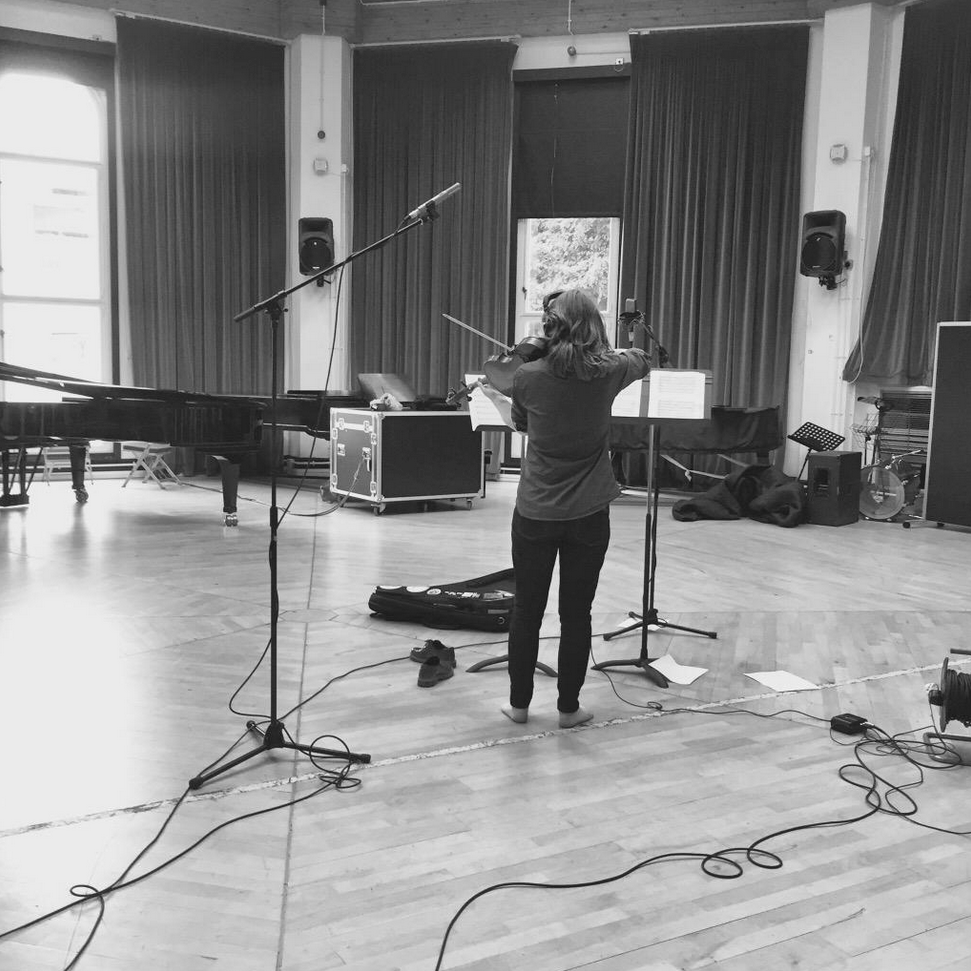
Violist Ariane Alexander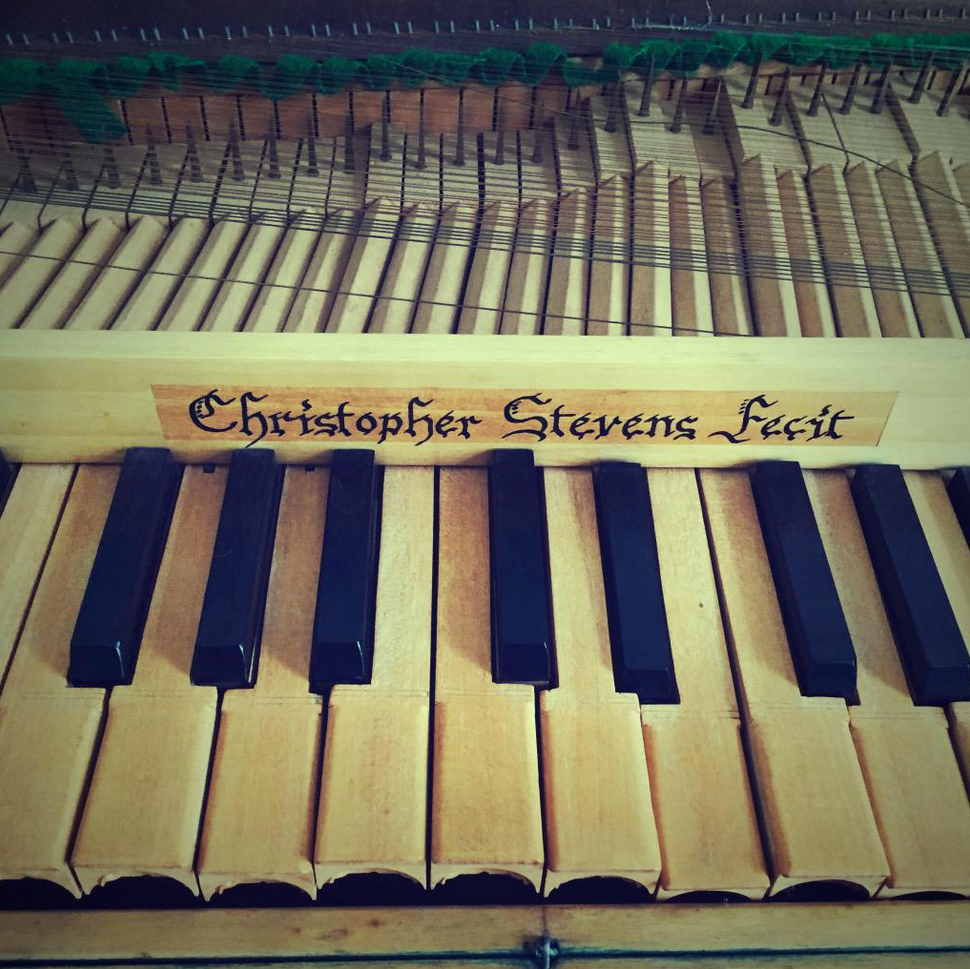

A broken harpsichord I found in a store room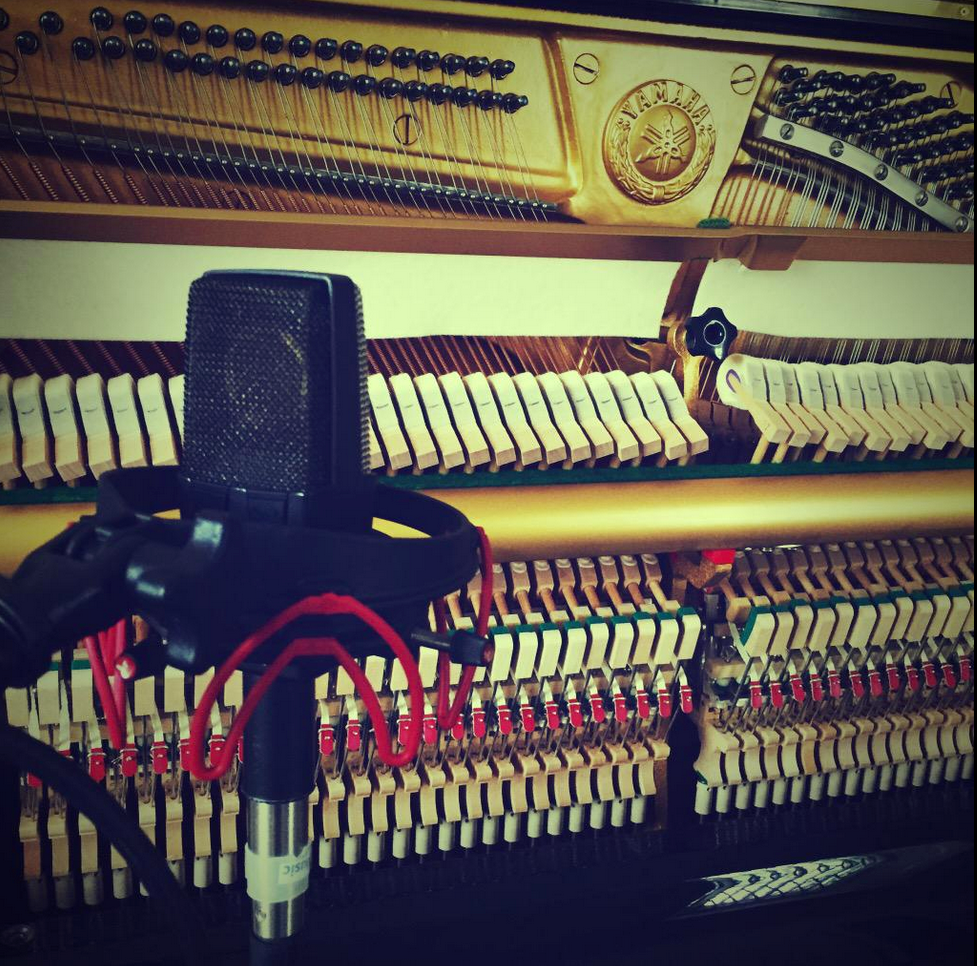
Feather Hammer throwbacks
Can You Hear Me? Recurring Sonic and Musical Gestures In The Works of David Bowie

I haven't had the time to write this presentation up as a proper paper, all I have here are the slides, audio examples and my own notes. If you're interested in seeing/hearing the ideas from the first of my talks given at the Symposium on the Stardom and Celebrity of David Bowie, held in Melbourne last July, click the 'read more' link below.
Data Set from Bowie Symposium Talk

Anyway, after the talk many people asked me if they could access the spreadsheet. So here it is. I added some 'sound-alikey' categories (Scott Walker/Frank Black/Anthony Newley-esque, etc) on the advice of one symposium delegate I chatted to after I gave the presentation.
It's a work in progress and certainly not meant to represent anything other than very general categorisations to illustrate a point I was trying to make in my talk (which I'll write up and post here shortly). I am well aware that many complexities in the music are ignored in these categories, and that Bowie's often oblique/abstract lyrical approaches are not well served by the simplistic themes I've listed here. I'm also aware that many might disagree on the categories I've chosen. By 'Modal Effect?' I'm referring to any significant modal or diatonic signature that is present, and am not suggesting that the entire song adheres to that tonal profile. That said, the data set can certainly be refined, and if you want to fiddle about with it and have some additions/amendments/objections by all means let me know (l.kardos@kingston.ac.uk) or adapt your own version to suit.
General Bowie Vocalisations vs Song Content (Excel) (Numbers)
For the visualisations, I used the free version of Tableaux Public. You can access the visualisations here (also embedded below, though it seems not all of the tabs are showing). Click the different tabs to see the visualisations I prepared for my talk 'Can You Hear Me? looking at the recurring sonic and musical gestures in the works of David Bowie'.
-----
Symposium - The Stardom and Celebrity of David Bowie - ACMI Melbourne

The Stardom and Celebrity of David Bowie is a two-day multi-discipline symposium that brings together artists, academics and cultural commentators to reflect upon the influences of and on David Bowie in rock, pop, film, art, fashion and performance. I will be delivering two talks at the symposium and a third on Sunday at the ACMI for the David Is… exhibition. I feel so lucky to be part of this - what a dream gig!
The talks I will be delivering are:
1. Can You Hear Me? - looking at the recurring sonic and musical gestures in the works of David Bowie
2. You Can't Hide Beat - talking about fan creativities in the context of a sample-based collaborative cover project I worked on in 2011
3. 5 Lessons: The creativities of David Bowie
Tickets are available here: https://www.acmi.net.au/live-events/talks-performances/the-stardom-and-celebrity-of-david-bowie/
Symposium programme guide is downloadable here
***********
Update: Well that was the BOWIEST weekend of my life, and one of the more enjoyable academic gigs I've been to. Here's some pics…

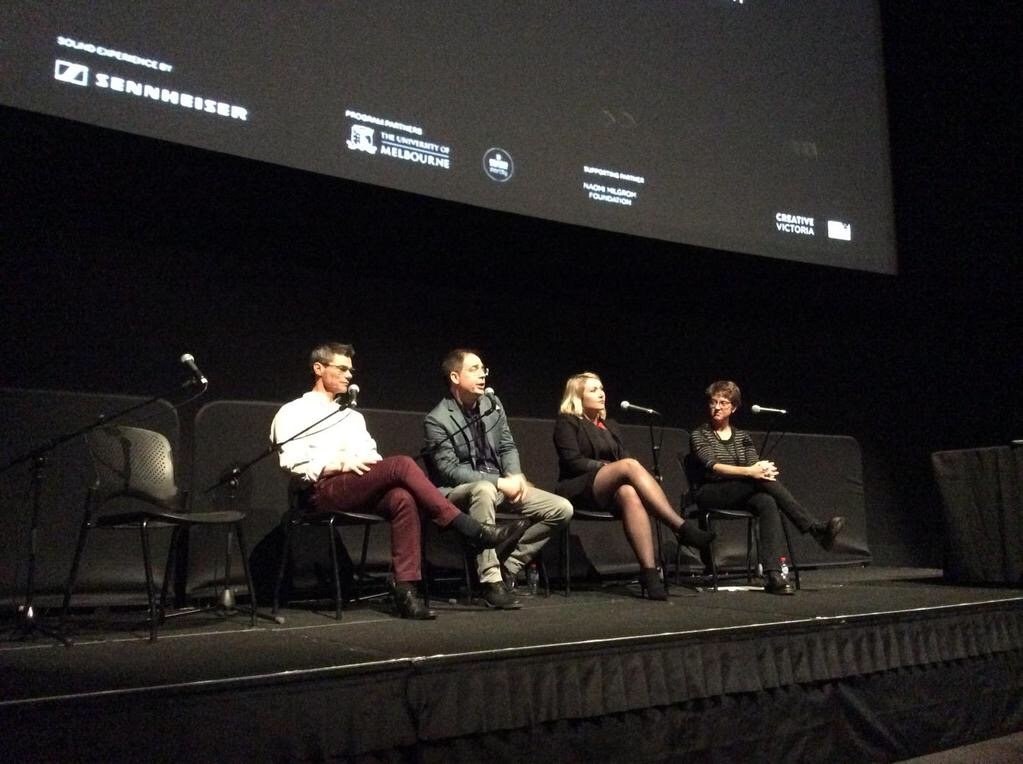

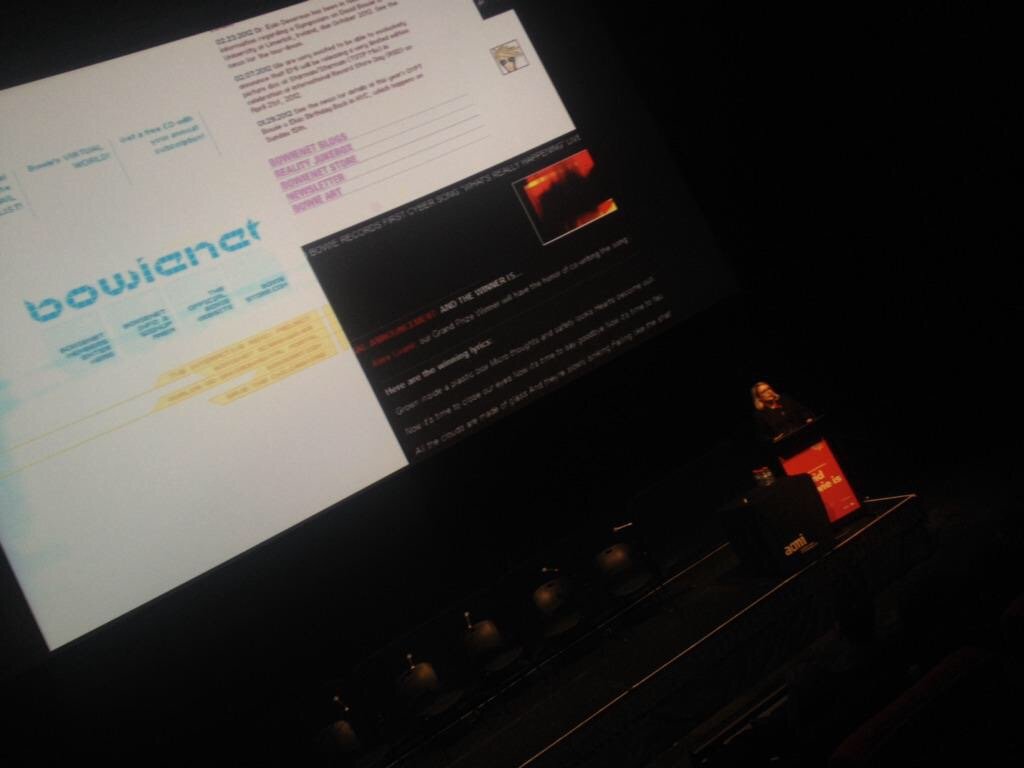

Review of R Andrew Lee at Spectrum (New York Classical Review)
http://newyorkclassicalreview.com/2015/06/pianist-lee-brings-clarity-order-and-hope-to-spectrum-program/
"… It’s not feel-good music, but by making honest order out of nothingness, it presents clarity and logic as opposed to chaos and the incomprehensible. And that is what Lee achieved. The music, the conception and Lee’s playing all built transparent, multidimensional structures. It was a beautiful design, full of satisfaction and hope."
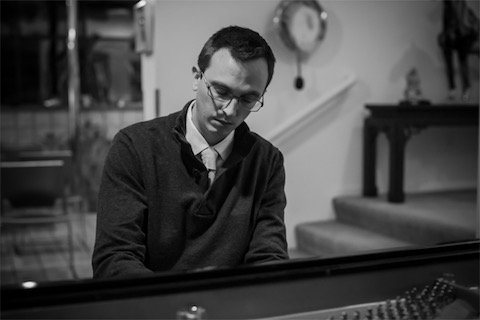 -----
-----Stream/Download from WNYC New Sounds
Hear music by Australian-born, London-based electroacoustic musician & sound artist Leah Kardos along with music by Irish woodwind player and composer Seán Mac Erlaine, as well as other electroacoustic music on this New Sounds. Listen to several works by Kardos from a sampler released in 2014, including her work, “Butterfly Kite,”written for easy piano + delay/verb effects. Then hear improvised woodwind and electronic sounds from a series of live recordings by the Dublin musician, Seán Mac Erlaine. From his, “A Slender Song,” hear music for clarinets of all sorts and sizes, manipulated by electronics.
Then, hear music from a dance score by London-based composer Jon Opstad, who also did the music for the provocative British episodic series, “Black Mirror.” Listen to music from cellist Julia Kent with loops and delays from the recent record, “Character.” German theremin player Carolina Eyck improvises on the low end together with pianist Christopher Tarnow. Then,hear music from NY-based singer GABI, who layers and processes her voice a la Juliana Barwick. (Caution: her work, "Where," might remind you of “The Rains of Castamere.”)
PROGRAM #3706–Various Forms of Electro-acoustic Music (First aired on 03/24/2015)
About New Sounds Podcasts
The most cutting-edge, worldly-wise music show on the airwaves returns with nearly bi-weekly installments available for download. For more than three decades, host John Schaefer has been exploring more genres of music than you knew existed. A truly compelling hour of radio, and now you can tune in wherever you are, whenever you want. As if you weren’t dependent enough on your MP3 player…
-----
R. Andrew Lee performs Three Preludes in New York City (June 18)
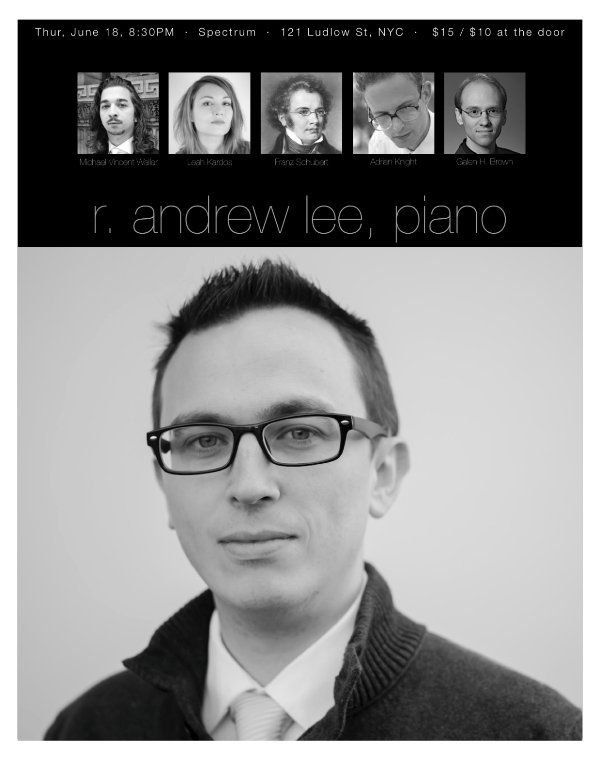
New York people: Pianist R. Andrew Lee will be performing at Spectrum on Thursday, June 18 at 8:30pm. Nestled amongst a diverse and lovely looking program is the North American premiere of my Three Preludes.
Pasticcio per meno è più (2014) by Michael Vincent Waller (b. 1985)
Three Preludes (2013) by Leah Kardos (b. 1979)
Piano Sonata in G Major, D894, Mvt. I (1826) by Franz Schubert (1797-1828)
Abide with Me (2007/2012) by Adrian Knight (b. 1987)
God is a Killer* (2006) by Galen H. Brown (b. 1979)-----
AES 138th Convention, Warsaw Poland

On May the 10th (session P17) I will be presenting my paper "The Sonic Vernacular: Considering Communicative Timbral Gestures in Modern Music Production"
A snippet showing the abstract (for anyone who's interested!)
“Over the course of audio recording history, we have seen the activity of sound recording widen in scope “‘from a technical matter to a conceptual and artistic one”’ (Moorefield 2010) and the producer’s role evolving from technician to ‘auteur’. For recording practitioners engaged in artistic and commercial industry and discourse, fluency in contemporary and historic sound languages is advantageous. This paper seeks to find the best, most practically useful method to describe these characteristics in practice, and aims to identify a clear and suitable way to talk about and analyse these uses of communicative timbral gestures, as heard in modern music productions.”
***** Update: Some photos from my weekend in Warsaw because why not?
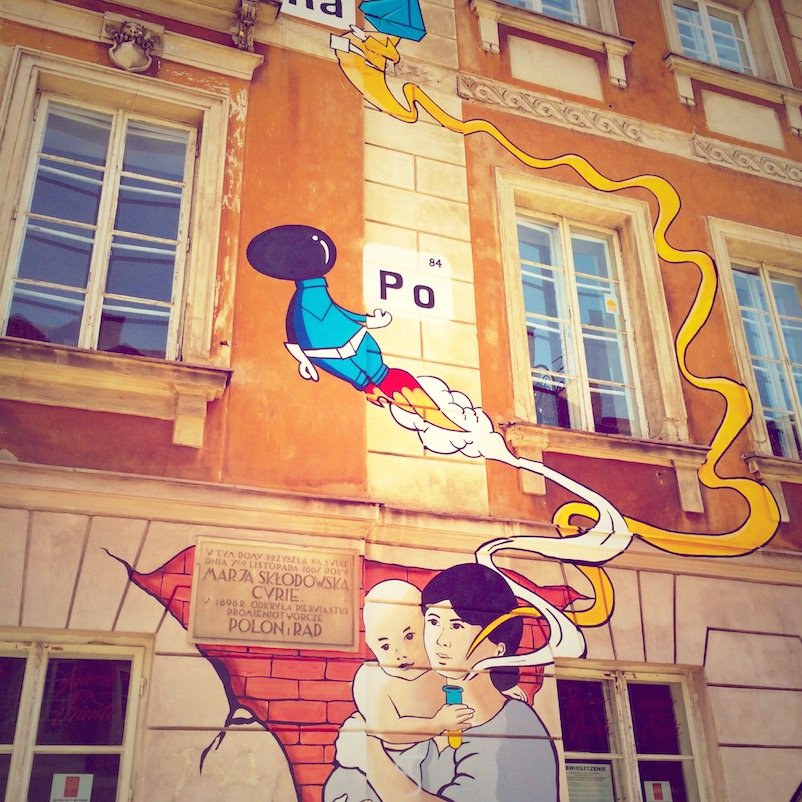




-----
forty eight - EP
Sound, light, space, memory, gravity, polygons
A month in photos


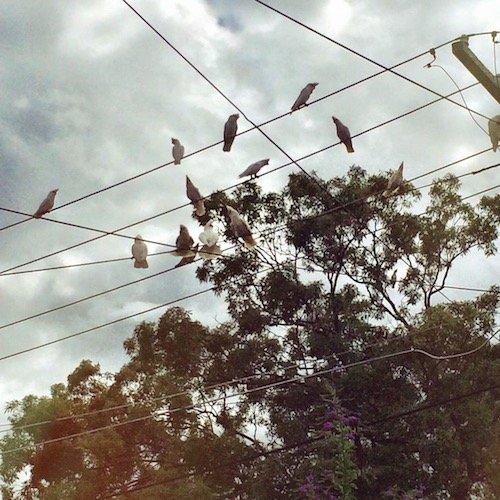





A book chapter about digital creativities

It’s available from Bloomsbury from the 29th of January as a hardback, paperback or e-book.
http://www.bloomsbury.com/uk/activating-diverse-musical-creativities-9781472589118/
“This book treats with freshness and vitality issues that are crucial for educators in higher education and beyond. The international and multi-disciplinary group of scholars – anthropologists, psychologists, musicians, artists and art educators – engage us in deeply educational issues and experiences...Enthusiastically recommended!” – Liora Bresler, Professor of Curriculum and Instruction, College of Education, University of Illinois, USA
“This is an illuminating and long-overdue book that celebrates the myriad ways in which musicians engage their creativity, both as they develop their expertise and then as professionals. In many contexts, we are experiencing acute needs to champion innovative artistic practices whilst at the same time maintaining the qualities of traditional practices. It is clear that creative entrepreneurship is essential to future success, and this book helps to demystify its principles and practice. It is a must-read for all those engaged in higher music education.” – Helena Gaunt, Vice Principal and Director of Academic Affairs, Guildhall School of Music & Drama, UK
***UPDATE: It's here!
I received a hardback copy of the book from the publishers and I thought it was rather pretty! Also, amazed my reference to Kanye West got through the edit...




